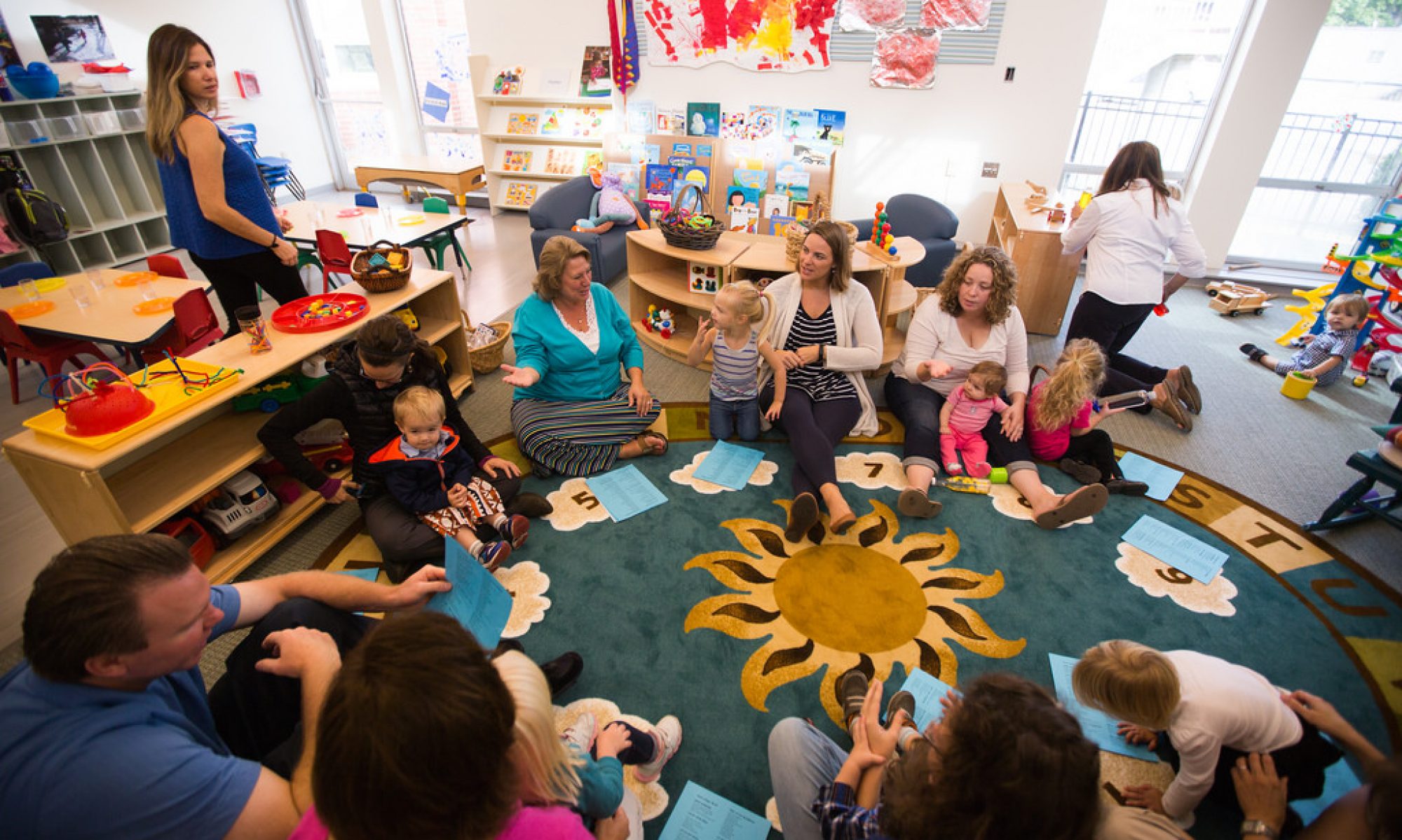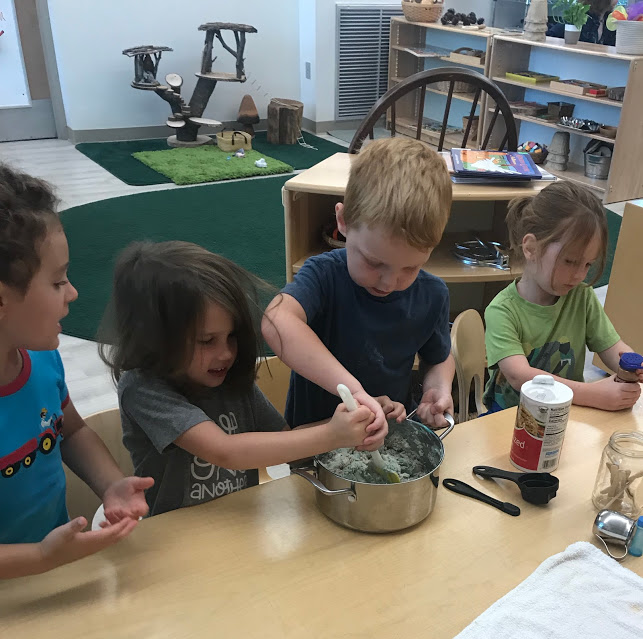By Dorothy Halverson, Early Childhood Principal
Our children learn to love our values as we find and use discipline that is firm but kind, consistent but flexible, principled but understanding. Our methods really do teach our values. We want our children to love doing what is right, so we don’t build up resistance by ordering them around. We speak to them respectfully and make requests with an attitude of expectancy. “Johnny, I need your help. Will you please set the table?” “Susie, your room will be so tidy when you get your toys picked up.”
Sometimes it helps to give some acceptable choices: “Would you like to take a bath or shower?” “Would you like to hop or skip to bed?” If neither of these is acceptable to the child, we can ask, “Would you like to walk or be carried?” If he doesn’t go, we can say, “Oh, I see you decided to be carried” and do it with a fun trot. The child feels that we’re not going to waver in making a right request, but that we do love him.
We don’t ask questions when there is no choice, such as, “Do you want to come to dinner?” or “I’m going to the store; do you want to get in the car?” “It’s time to …” is a better way to phrase these requests.
We all like to plan ahead and know what we’re doing next. Children can gain a better sense of time and show more cooperation if they are told what’s coming, such as “In a little while we’re going to the store.” Or we can set a timer and say, “When you hear the timer ring, it will be time for you to come in for lunch.”
Suppose the timer rings and nothing happens. We can say, “Oh, you didn’t hear the timer ring? Let’s practice listening for it. I’ll set it for one minute, and when you hear it, you’re going to come immediately.” When the child comes, we can say, “My, how quickly you came when you heard the timer that time!”
Coming when called can be practiced similarly: “You go into the living room, and when you hear your name, see how fast you can come.” Then we can try the bedroom or outdoors, showing great delight when the child comes. A refresher practice session may be needed again from time to time, but this should always be done without anger or a sense of punishment: “Oh, you forgot to listen for your name. Let’s practice and see how fast you can come.”
Similarly, older children who take too long to dress in the morning might need to practice dressing after school to see if they can do it more quickly. It helps to know what to expect of children at different times. A new baby isn’t just crying for attention. He is trying to communicate with us, so we respond and try to understand what his needs may be.
A nine-month-old is taking apart and emptying things without putting them back because learning to take things apart comes before learning to put them together. If he has lots of practice taking things apart and watching us put them together, he’ll soon be putting them together.
A baby is not being naughty when he drops and throws things. He’s learning the effect of his hands on various objects. He can be taught, however, if we say, “Balls are for throwing. We don’t throw trucks.” At the same time, he should be given a ball (a soft Nerf ball is good for inside).
Little children handle objects because they’re intensely curious, and that’s how they learn about things. It’s best to put breakables out of reach and not have too many “no-no’s” around before the child is two. When he’s older, he can understand the difference between breakable and unbreakable, yours and mine. But if he’s told not to touch too many things, he may be learning, “Don’t be curious. Don’t learn.”
On the other hand, he must learn not to touch plugs and electric cords. We need to say, “No!” firmly and remove him quickly. Consistency in requiring right actions teaches obedience.
It is good to redirect actions to acceptable alternatives. Put some safe items in a low kitchen drawer. Remove the child if he’s opening a different drawer with a “No,” and then say, “This is your drawer.”
Though we must understand children and not be unreasonable in our expectations, we must also expect enough from them. Children should not be allowed to be disrespectful to others or impolite, to jump on the couch or scratch furniture. If we hold them firmly to right actions when they are young, we can gradually lengthen the rope of authority as they gain responsibility, and they will learn that responsibility brings freedom.
What if a child is expressing jealously, aggression, or willfulness? If we think, “It’s natural for him to be jealous of his brother,” we’re giving credibility to a commonly held, but erroneous, belief and thereby making it harder for him. We might then talk to him and treat him as though he is jealous, aggressive, or self-willed, and he may accept that false concept about himself. It’s important to deny these negative traits as spurious suggestions having no place in our child’s individuality, look at manifestations of them as mistakes to be corrected, and steadfastly hold to a true concept of our child as an expression of Love.
Again, we can hold our child to right actions. If pages of a book are being torn, we need to immediately remove it and say, “Oh, we don’t like our book to have torn pages. We’ll have to put it away.” He learns that when he doesn’t treat a book well, he doesn’t have it again for a while.
We can say, “Oh, sister doesn’t like it when you take her toys away” and then put a hand on his and help him give the toy back. Tell him, “You may play with a toy that sister’s not playing with. We don’t take toys from others.”
Discipline should teach what we want it to teach. Some methods, unfortunately, just teach a child to think, “She doesn’t understand me. I’ll do it when she’s not around.” If there seems to be a running battle over something, it is helpful to think through these points:
- What does the child need to learn? State it in positive terms: “Crayons are for drawing on paper, not on walls. We want to keep our walls clean.”
- What metaphysical truths can I know about the situation? This step will frequently lead beautifully to improved behavior, and sometimes the problem is met without needing further steps. You might affirm, “My child is an expression of divine Mind and is, in reality, receptive and obedient to his Father-Mother God.”
- What actions might I take to help my child learn the needed lesson? FOr example, you could put the crayons away for a while, have him help clean up the marks, or give him paper and supervise while he’s drawing.)
- Choose the action which seems best to you. Take it and then evaluate.
Parenting is a constant learning process, and as we strive to use the methods that teach the desired lessons to our children, we find ourselves enjoying them more fully.
From Principia’s Founder
“Discipline is instruction through training, or training which instructs. To be true discipline, the instruction must be an emanation from Principle: its basis and demand must be impersonal; its purpose must be ‘right for right’s sake’.”
“The result of discipline will depend almost entirely on the mental attitude of the parent or teacher administering that discipline. If his objective is to bring healing to the false sense, and his standpoint is loving interest in the child’s progress Godward, the teacher has caught the true spirit of teaching.”
“True discipline rarely creates a breach—it binds both parties closer together in the bonds of love.”
—Education at The Principia, pp. 25, 19, 18

